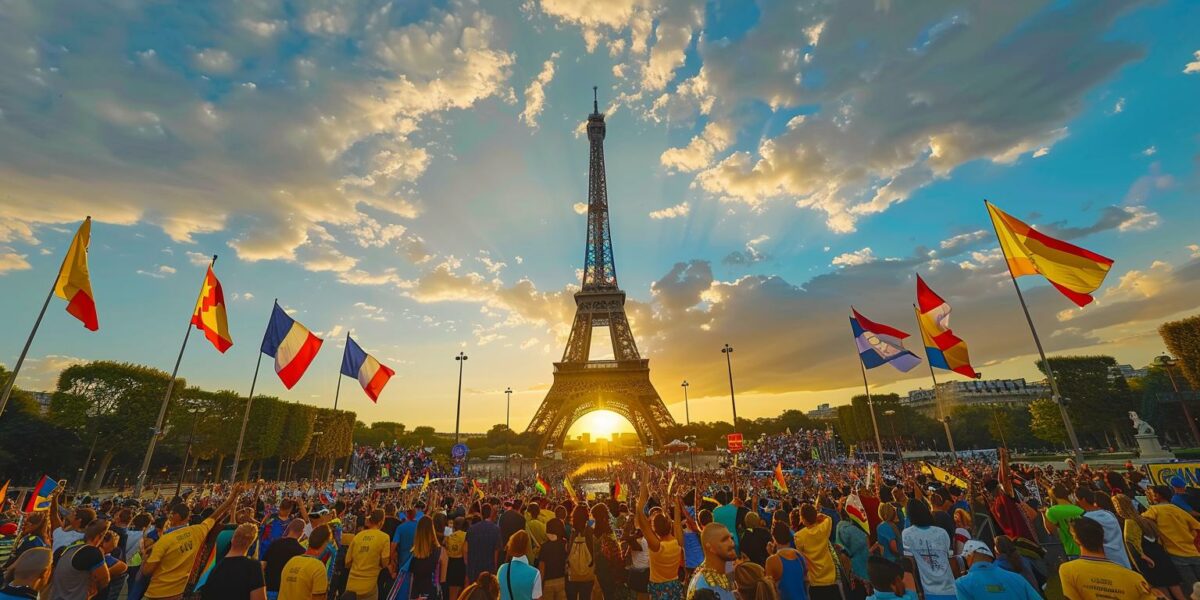Participants in the 2024 Paris Olympics
The 2024 Summer Olympics in Paris are set to welcome a spectacular number of athletes from around the globe. The International Olympic Committee (IOC) has recognized 206 National Olympic Committees, along with the Refugee Olympic Team, contributing to a total of 205 delegations represented in these Games.
Approximately 10,500 athletes will compete in various sports, ranging from swimming to judo. This grand event will also see another 4,000 athletes participating in the Paralympics, making it a truly inclusive global celebration of sportsmanship.
During the Opening Ceremony along the Seine River, all delegations, even those with just a single athlete, will be introduced. Additionally, around 120 heads of state and government officials are expected to attend, highlighting the international significance of these Games.
The list of participating countries includes, but is not limited to:
- Afghanistan
- Albania
- Brazil
- Canada
- China
- France
- Germany
- India
- Japan
- United States
Non-Participants in the 2024 Paris Olympics
Notably absent from the 2024 Paris Olympics are Russia and Belarus. The IOC voted to suspend these nations due to the ongoing conflict in Ukraine, marking a significant geopolitical stance in the sports world. This decision aligns with the IOC’s commitment to peace and the Olympic Truce.
The suspension stems from Russia’s invasion of Ukraine in February 2022, which the IOC deemed a blatant violation of the Olympic Truce. Belarus was also sanctioned for its support of Russia, leading to a continued ban on both nations.
Despite the ban, some athletes from these countries will compete under the designation of Individual Neutral Athletes. These athletes are allowed to participate only if they adhere to strict guidelines that prohibit any display of support for Russia or Belarus.
Neutral athletes must agree to refrain from any activity indicating support for the war in Ukraine before, during, and after the Olympics, ensuring the Games remain a platform for peace and unity.
Historical Comparisons of Olympic Participation
Traditionally, the Summer Olympics attract about 10,000 athletes from around 200 territories, while the Winter Games see around 2,900 athletes from 80 national committees. These numbers highlight the expansive and inclusive nature of the Olympic Games across different seasons and years.
Russia’s current suspension marks the fourth consecutive Olympics where the nation faces significant participation restrictions. Previously, Russian athletes competed under the Russian Olympic Committee name due to a state-sponsored doping scandal, but this year, only neutral athletes are allowed.
Historical events have also influenced Olympic participation. For instance, the 1932 Olympics in Los Angeles saw a dramatic drop in athlete numbers due to the Great Depression, and the Games were canceled during World War II.
Various political conflicts have impacted participation, such as the 1980 Moscow Olympics, which saw a boycott by numerous nations, including the U.S., in response to the Soviet invasion of Afghanistan. Yet, the Olympics have consistently rebounded, demonstrating resilience and global unity.
Impact of Geopolitical Conflicts on the Olympics
Throughout history, geopolitical events have significantly impacted the Olympic Games. The suspension of Russia and Belarus in 2024 is reminiscent of past conflicts that led to changes in participation, such as the post-World War II bans on Germany and Japan.
In 1976, several African nations boycotted the Olympics to protest apartheid policies in South Africa, highlighting how political stances can affect sports. Similarly, the Soviet-led boycott of the 1984 Los Angeles Olympics in retaliation to the 1980 boycott by Western nations underscores the Games’ role as a political arena.
Despite these challenges, the Olympics have continued to promote international cooperation and peace. The global broadcast of the 1964 Tokyo Games marked a turning point, bringing the Olympic spirit to millions of viewers worldwide and solidifying its status as a premier international event.
The 2024 Paris Olympics aim to uphold this legacy, showcasing the world’s best athletes while navigating the complexities of modern geopolitical tensions. The resilience and adaptability of the Games serve as a testament to their enduring significance in promoting global unity.



andrew
Heard about the suspension, but didn’t know it was this serious. Thanks for the detailed post!
ellie
Interesting read, but I wonder how these decisions are impacting the athletes’ morale?
Luke_Prism
This is just crazy! Politics shouldn’t interfere with sports. What’s next? 😠
Gizmo
Does anyone know if athletes from these countries will face any extra scrutiny? 😕
toby_seraph
Thanks for the update! I hope the neutral athletes still get a fair chance to compete.
xavier
Wow, I can’t believe Russia and Belarus won’t be there! How will this affect the competition?